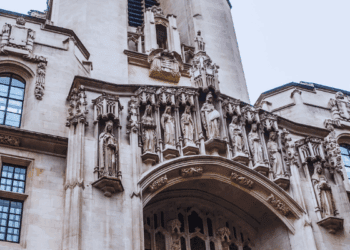 Recent US airstrikes in Syria are unlikely to do anything other than incite a response by Russia, Iran, and Syria, writes Robert Murray. American allies – including Canada – should be wary of rushing to support such unilateral action.
Recent US airstrikes in Syria are unlikely to do anything other than incite a response by Russia, Iran, and Syria, writes Robert Murray. American allies – including Canada – should be wary of rushing to support such unilateral action.
There is no denying the chemical weapons attacks in Khan Sheikhoun, Idlib are appalling and are yet another example of the strategic and humanitarian failures of international society in Syria’s ongoing civil war. Since the crisis in Syria began in 2011, the world has seen unspeakable horrors, war crimes perpetrated by the Assad regime against its own people, unenforced “red lines,” and feeble efforts by the society of states to “do something” without doing much of anything at all.
In response to the use of chemical weapons on innocent civilians, there were calls for action on legitimate grounds, given that such an egregious violation of international law and the historical willingness of the Assad regime to use such weapons continue to go without punishment.
Such open disregard for humanitarian law and norms cannot simply go unnoticed yet again and result in statements of outrage with no consequence.
The reasons for how and why Assad is able to perpetrate such crimes is well known, given the multiple geopolitical dynamics involved in the Syrian civil war, especially the involvement of Russia and the multiple failures of the Obama administration related to Syria. Yet it’s certainly the case that such open disregard for humanitarian law and norms cannot simply go unnoticed yet again and result in statements of outrage with no consequence.
In a move that surprised many, including some of his most ardent supporters, the Trump administration launched a series of airstrikes at Shayrat Air Base in response to the chemical weapons attack to deter future use of toxic gas by the Assad regime. President Trump even called on other nations “to end the slaughter and bloodshed in Syria.”
There is little evidence to support the idea that such action signals a shift in Trump’s foreign policy doctrine regarding humanitarianism. Some observers, such as Aidan Hehir, argue this is more about Trump’s image than a genuine concern to help those suffering. Hehir claims: “This is no more than gesture politics designed to bolster the image of ‘Brand Trump’.” What makes this argument compelling is not necessarily that the Trump administration responded, but how it chose to respond.
Launching 59 tomahawk missiles at an air base is unlikely to serve as a deterrent to a regime that remains protected by the Russians
The US airstrikes were not approved by the UN Security Council nor can they be justified under international law, given that they were not conducted out of self-defence. There is also no strategic justification for strikes of this kind, given that launching 59 tomahawk missiles at an air base is unlikely to serve as a deterrent to a regime that remains protected by the Russians – at a time when Trump’s primary foreign policy goal seems to be to abdicate any perception of US responsibility for policing crises or conflicts.
Moreover, the airstrikes beg an important question about why US allies, who were not involved in conducting the strikes, have been so vocal in support for this unilateral action. Canada’s Prime Minister Justin Trudeau noted that “Canada fully supports the United States’ limited and focused action to degrade the Assad regime’s ability to launch chemical weapons attacks against innocent civilians, including many children.” Other US allies such as the UK, Australia and Turkey also voiced support for the airstrikes on the grounds that the use of chemical weapons necessitated a response.
Ultimately these airstrikes will accomplish little other than inciting a strong response from Russia, Iran and Syria – although a potential silver lining might be that it finally heralds the end of the honeymoon between Trump and Putin. Their strategic purpose is also highly questionable. If a response was warranted, which it arguably was, it should have been vetted through mechanisms of international law, coordinated with allies in advance, and been part of a more complex strategy to help those affected by such attacks and who continue to suffer.
There is no expectation the UN Security Council would approve any sort of action due to the ongoing use of the veto by Russia and China on anything related to Syria. But returning to the “illegal but legitimate” paradigm presents significant challenges and dangers, especially as the evolution from unipolarity to multipolarity continues.
For US allies, who have been vilified by Trump for not pulling their weight, rushing to support unilateral action without regard for legitimacy or effectiveness is both troubling and naïve.
Robert W. Murray is Managing Director for Dentons Canada LLP’s Government Affairs and Public Policy Practice Group and a Senior Fellow at the Macdonald-Laurier Institute’s Foreign Policy Centre.




